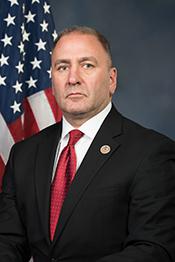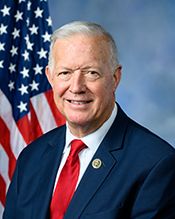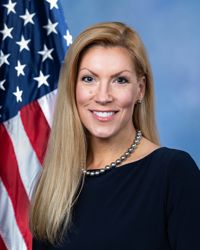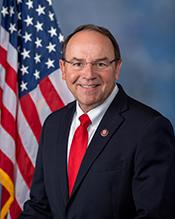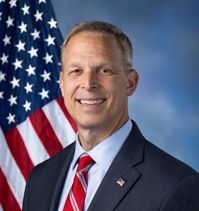1
5
5
Offshore Lands Authorities Act of 2025
5/22/2025, 2:56 PM
Summary of Bill HR 513
Bill 119 hr 513, also known as the "Nullifying Presidential Withdrawals of Unleased Offshore Land Act," aims to reverse certain decisions made by the President regarding the withdrawal of offshore land that has not been leased for oil and gas exploration. The bill seeks to amend the Outer Continental Shelf Lands Act in order to place restrictions on the President's authority to withdraw unleased offshore land.
The main purpose of this bill is to limit the President's ability to block access to offshore areas that have not yet been leased for energy development. By nullifying previous withdrawals of unleased land and establishing new limits on future withdrawals, the bill aims to promote increased exploration and development of offshore resources.
Supporters of the bill argue that it will help to boost domestic energy production and create jobs in the oil and gas industry. They believe that by opening up more offshore areas for exploration, the United States can reduce its dependence on foreign oil and strengthen its energy security. Opponents of the bill, however, argue that it could have negative environmental impacts by allowing for increased drilling in sensitive offshore areas. They also raise concerns about the potential for oil spills and other disasters that could harm marine ecosystems and coastal communities. Overall, Bill 119 hr 513 is a controversial piece of legislation that seeks to balance the need for energy development with environmental protection. Its fate in Congress remains uncertain as lawmakers continue to debate the potential consequences of its passage.
The main purpose of this bill is to limit the President's ability to block access to offshore areas that have not yet been leased for energy development. By nullifying previous withdrawals of unleased land and establishing new limits on future withdrawals, the bill aims to promote increased exploration and development of offshore resources.
Supporters of the bill argue that it will help to boost domestic energy production and create jobs in the oil and gas industry. They believe that by opening up more offshore areas for exploration, the United States can reduce its dependence on foreign oil and strengthen its energy security. Opponents of the bill, however, argue that it could have negative environmental impacts by allowing for increased drilling in sensitive offshore areas. They also raise concerns about the potential for oil spills and other disasters that could harm marine ecosystems and coastal communities. Overall, Bill 119 hr 513 is a controversial piece of legislation that seeks to balance the need for energy development with environmental protection. Its fate in Congress remains uncertain as lawmakers continue to debate the potential consequences of its passage.
Read the Full Bill
Current Status of Bill HR 513
Bill HR 513 is currently in the status of Bill Introduced since January 16, 2025. Bill HR 513 was introduced during Congress 119 and was introduced to the House on January 16, 2025. Bill HR 513's most recent activity was Subcommittee Hearings Held as of May 20, 2025
Bipartisan Support of Bill HR 513
Total Number of Sponsors
9Democrat Sponsors
0Republican Sponsors
9Unaffiliated Sponsors
0Total Number of Cosponsors
91Democrat Cosponsors
0Republican Cosponsors
91Unaffiliated Cosponsors
0Policy Area and Potential Impact of Bill HR 513
Primary Policy Focus
EnergyAlternate Title(s) of Bill HR 513
To nullify certain Presidential withdrawals of unleased offshore land, amend the Outer Continental Shelf Lands Act to establish limits on the authority of the President to withdraw unleased offshore land, and for other purposes.
To nullify certain Presidential withdrawals of unleased offshore land, amend the Outer Continental Shelf Lands Act to establish limits on the authority of the President to withdraw unleased offshore land, and for other purposes.
Comments

Gwendolyn Woods
418
10 months ago
I think this bill is a good idea. It will help protect our offshore land and limit the President's authority to withdraw it. It's important to preserve our natural resources for future generations. #ProtectOurLand #PreserveOurFuture
Sponsors and Cosponsors of HR 513
Latest Bills
A bill to require the Secretary of Veterans Affairs to disinter the remains of Fernando V. Cota from Fort Sam Houston National Cemetery, Texas, and for other purposes.
Bill S 1071December 10, 2025
Restoring Truth and Sanity to American History Act
Bill S 2385December 10, 2025
Reducing Waste in National Parks Act
Bill S 1926December 10, 2025
Holocaust Expropriated Art Recovery Act of 2025
Bill S 1884December 10, 2025
PATRIOT Parks Act
Bill S 2308December 10, 2025
Appalachian Trail Centennial Act
Bill S 2708December 10, 2025
Francis G. Newlands Memorial Removal Act
Bill S 2369December 10, 2025
Myakka Wild and Scenic River Act of 2025
Bill S 2270December 10, 2025
Holocaust Education and Antisemitism Lessons Act
Bill S 332December 10, 2025
Veterans Mental Health and Addiction Therapy Quality of Care Act
Bill S 702December 10, 2025
